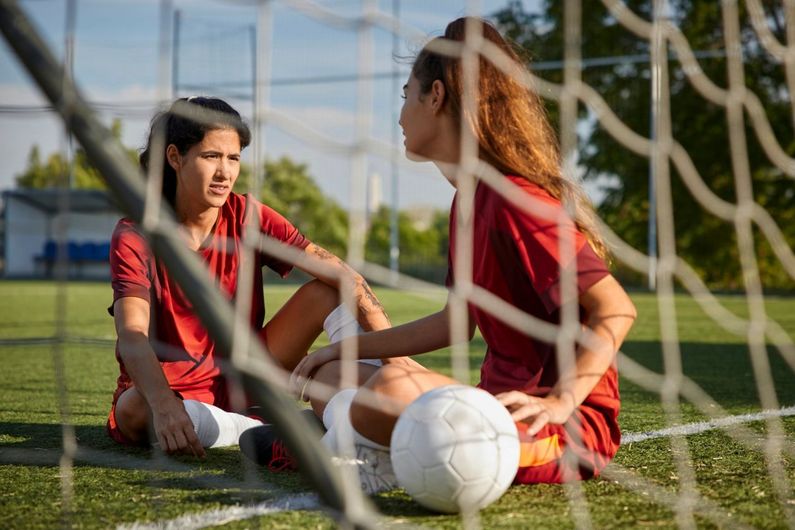Concussed, me? It's nothing.
- Salle de presse
09/27/2023
- UdeMNouvelles
If they've already had a concussion before, university athletes are less likely to report symptoms of a new one when the symptoms are less severe, an UdeM study suggests.
University athletes who have already suffered a sport-related concussion are less likely to report symptoms of a new concussion if they consider them to be less serious than their previous ones.
That's the conclusion of a study of nine Quebec athletes published in August in Neurotrauma Reports by researchers at Université de Montréal's School of Kinesiology and Exercise Sciences.
"Our research is the first to have directly looked at the psychology of athletes in terms of concussion disclosure," said William Archambault, who conducted the qualitative study as part of his Ph.D. in exercise sciences.
Despite major awareness campaigns, studies show that more than 50 per cent of athletes still do not disclose their concussion symptoms. This can have serious consequences, ranging from persistent symptoms to permanent cognitive sequelae.
Since concussion symptoms are often subtle, transient or downright invisible, the diagnosis and optimal management of a concussion depend on athletes’ willingness to disclose their symptoms.
"Thus, for the health and safety of athletes, it seemed of the utmost importance to us to understand the reasons why so many are still silent about this injury," said Dave Ellemberg, a neuroscientist and professor who supervised the work.
Three major themes
From hour-long interviews with nine university soccer and rugby players and cheerleaders (five female, four male), the researchers identified 13 factors, which they then divided into three major themes: attitudes and behaviours, knowledge about concussions, and personal assessment of the concussion.
"After analyzing all the targeted factors, we came to the conclusion that the decision-making process behind the disclosure of concussions is not primarily influenced by general knowledge about this injury," said Archambault.
"What weighs most in the balance is the athlete’s history of concussion as well as the severity of the concussion that was just suffered."
Hence, athletes who have already suffered concussions tend to adopt a nondisclosure strategy by default, as they have become much less worried about the consequences of this injury on their health. Only a concussion deemed more serious than their most serious previous concussion can reverse this bias and lead to disclosure.
Manifestations lead to disclosure
What is even more concerning is that most athletes report treating a concussion as severe only when the symptoms are visible and impossible to hide or when they interfere with their athletic performance. "At that point," said Archambault, "it could be argued that it is rather the manifestations of the injury that alert the people in their life and lead to disclosure."
"Though our study may appear small in scope, saturation was reached - that is, no further data collection or analysis was necessary to reach an accurate conclusion - and so our findings have useful implications for the prevention and management of concussions in sport,” said Ellemberg.
"Our previous studies helped advance awareness of concussions," he added. "Our latest work suggests that the scope of campaigns around general knowledge and consequences of concussions is limited."
To reverse the nondisclosure bias, innovative strategies must be implemented that target specific psychological factors such as attitudes and behaviours, prioritization of intellectual activities over sports activities, and maturity, the researchers believe. For example, a first step would be to better document the concussion history of each athlete which would identify those more at risk of not reporting their symptoms.
About this study
"Hard-headed decisions: intrapersonal factors underlying concussion reporting in university athletes," by William Archambault and Dave Ellemberg, was published Aug. 17, 2023 in Neurotrauma Reports.
Media contact
-
Julie Gazaille
Université de Montréal
Tel: 514 343-6796












